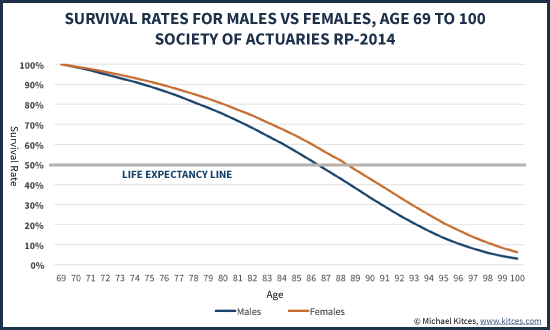Some may be interested in a recent article on annuitization (immediate or deferred, not indexed) by Swerdloe.
http://www.etf.com/sections/index-investor-corner/swedroe-12?nopaging=1
While most of this has been discussed on other forum posts, I wonder if any are considering some use of deferred annuitization--or have implemented it--, after the ruling allowing deferred annuities to satisfy (or actually decrease) annual RMD requirements:
" In July of 2014, the Treasury department issued new regulations surrounding the purchase of deferred-income annuities in tax-deferred accounts.
The new regulations allow for the purchase of deferred-income annuities in qualified retirement accounts that begin payments after age 70.5 without violating RMD rules. However, there are certain requirements the qualified annuity must meet in order for the IRS to allow for annuitization after age 70.5:
At this point, I'm not planning to do it, based on the current interest rate environment, but would consider it in the next few years if/when interest rates rise.
The scenario table was also interesting (particularly the spending improvement line), but I'm not sure how to interpret it, other than as a theoretical increased spending rate, based on annuitization.
http://www.etf.com/sections/index-investor-corner/swedroe-12?nopaging=1
While most of this has been discussed on other forum posts, I wonder if any are considering some use of deferred annuitization--or have implemented it--, after the ruling allowing deferred annuities to satisfy (or actually decrease) annual RMD requirements:
" In July of 2014, the Treasury department issued new regulations surrounding the purchase of deferred-income annuities in tax-deferred accounts.
The new regulations allow for the purchase of deferred-income annuities in qualified retirement accounts that begin payments after age 70.5 without violating RMD rules. However, there are certain requirements the qualified annuity must meet in order for the IRS to allow for annuitization after age 70.5:
- Only 25% of any retirement account (or 25% of all pre-tax IRAs aggregated together) can be invested into a deferred income annuity.
- The cumulative dollar amount invested in all deferred-income annuities across all retirement accounts may not exceed the lesser of $125,000 or the 25% threshold. The $125,000 amount will be indexed for inflation, adjusted in $10,000 increments.
- The limitations will apply separately for both spouses with their own retirement accounts.
- The deferred-income annuity must begin its payouts by age 85 (or earlier)."
At this point, I'm not planning to do it, based on the current interest rate environment, but would consider it in the next few years if/when interest rates rise.
The scenario table was also interesting (particularly the spending improvement line), but I'm not sure how to interpret it, other than as a theoretical increased spending rate, based on annuitization.

